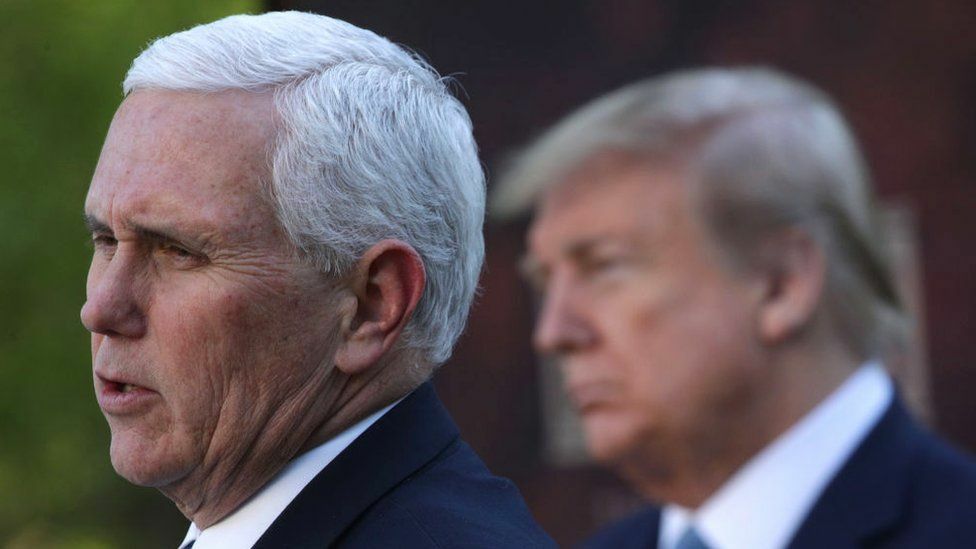Pence battles Trump for 2024 GOP nomination and evangelical vote

The prospect of a 2024 presidential campaign led by Mike Pence, with his background in Congress and experience as a state governor, would have been highly promising in a conventional political landscape. As a former vice-president, Pence has had numerous high-profile roles within the administration and four years to establish connections with his party’s grassroots. Additionally, he is a methodical yet charismatic public speaker with a history of strong debate performances and a stint as a conservative radio host.
However, the political world has changed since Donald Trump’s rise to power in 2016. The 2024 election will be a unique event in modern American politics, as it will be the first time a former vice-president and his former president compete for their party’s presidential nomination.
David Oman, former chair of the Iowa Republican Party, describes Pence as a “traditional conservative” who is not as vocal as Trump. Currently, Trump holds the upper hand with a vast campaign fund, high approval ratings among Republican voters, and unwavering support from approximately 30% of his party’s voters. This loyal Trump base also regards Pence with scepticism, considering his refusal to support Trump’s efforts to overturn the 2020 electoral defeat a betrayal.
In March, Pence stated that Trump’s “reckless words” endangered his family during the January 6th attack on the US Capitol, adding that “history will hold Donald Trump accountable”. For now, however, it seems that Trump’s supporters are the ones judging Pence.
For Pence to succeed in his presidential bid, he needs Trump to falter. If that occurs, it is more likely that Trump’s supporters will shift to someone like Florida Governor Ron DeSantis. However, Pence does have an advantage over his former running mate in one area: his strong ties to the US evangelical community as a devout Christian. This connection was a significant factor in Trump selecting Pence for his 2016 ticket, as it helped to alleviate concerns of Christian voters.
Pence served as the Trump administration’s ambassador to the Christian right, promoting victories on cultural issues such as abortion and religious freedom. He now hopes to capitalise on this history and attract the former president’s evangelical voters, particularly in Iowa, where Christian conservatives have considerable influence.
Oman explains that this group makes up over 30% of Republican voters who will participate in the early 2024 caucus, making it a crucial demographic for candidates to consider. However, Pence faces competition for the evangelical vote from other candidates like DeSantis and South Carolina Senator Tim Scott. A crowded and divided field increases the likelihood that no one will be able to defeat Trump.
Oman suggests that Pence needs to focus on his past as a governor and present ideas for the future, offering a credible alternative to Trump. Pence has been positioning himself for a presidential bid for over a year, even before Trump announced his White House ambitions. With another former vice-president now in the Oval Office, Pence’s presidential aspirations are not entirely far-fetched, despite the unprecedented path he would have to take to reach the White House.
Latest Thailand News
Follow The Thaiger on Google News:


























